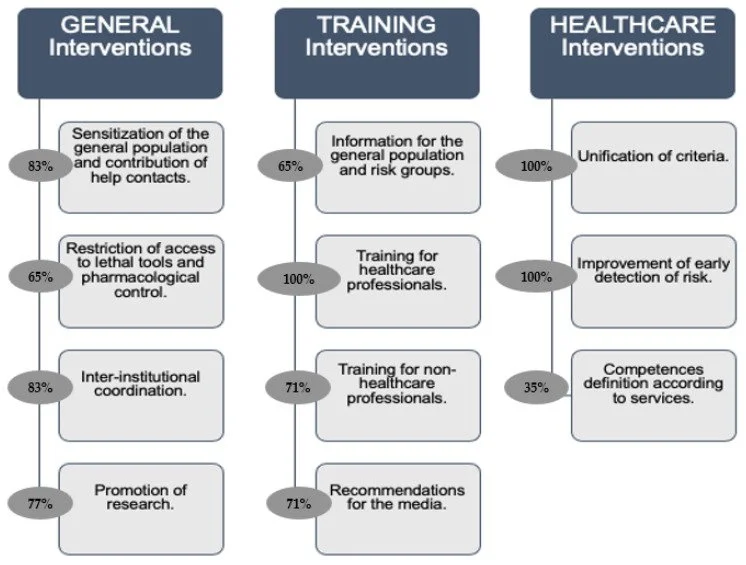Suicide prevention plans in Spain
Author: Teresa Sufrate Sorzano
At present, there is no suicide prevention plan implemented by all the autonomous communities in a generalized manner
A comparative study of the different suicide prevention plans in Spain shows that not all autonomous communities have planned preventive activities aimed at the general population, although they all include those related to the health sector. This research has been carried out by the Research Group on Care (GRUPAC) of the University of La Rioja, in collaboration with the Riojan Health Service, the Biomedical Research Centre of La Rioja (GISOSS-CIBIR) and the International University of Valencia. The aim of the study was to describe and compare the interventions described in the suicide prevention plans in the different autonomous communities of Spain (including Ceuta and Melilla); choosing only one plan per community, selecting the most recent and excluding those that were not endorsed by governmental and/or health entities. The study finds that most of the interventions are directed towards health professionals, especially in the field of mental health, as well as towards the most vulnerable population. However, other types of measures focused on key areas such as awareness-raising in schools or the training of social agents are also observed.
With regard to gender and over the last few years, the study shows a change in the proportion of men/women who die by suicide. Whereas in the past, suicides occurred more frequently among men and suicide attempts among women, there is now an increase in the proportion of women who actually commit suicide. The study also points out that not all autonomous communities have a specific suicide prevention programme, but that the preparation of this document responds more to an objective included in more general plans such as mental health, sometimes not yet developed. The study highlights the aspects of interest to be included in the reviews of current plans or in future plans to be developed, including the improvement of mental health care, especially in situations of isolation and confinement such as that experienced during the pandemic. Currently, this research group of the University of La Rioja (GRUPAC) is working on the development of a guide with recommendations for the exposure and dissemination of suicidal behaviour in the media. The researchers state that "it is necessary to demystify that suicide is a non-preventable act, since people who suffer from suicidal ideation feel contradictory emotions and live with ambivalent feelings of death until moments before committing the suicidal act; therefore, the 4 development of suicide prevention plans, as well as preventive strategies, is favourable and necessary for its prevention".
Reference to original paper: Sufrate-Sorzano, T., Jiménez-Ramón, E., Garrote-Cámara, M. E., Gea-Caballero, V., Durante, A., Júarez-Vela, R., & Santolalla-Arnedo, I. (2022). Health Plans for Suicide Prevention in Spain: A Descriptive Analysis of the Published Documents. Nursing reports (Pavia, Italy), 12(1), 77–89. https://doi.org/10.3390/nursrep12010009


